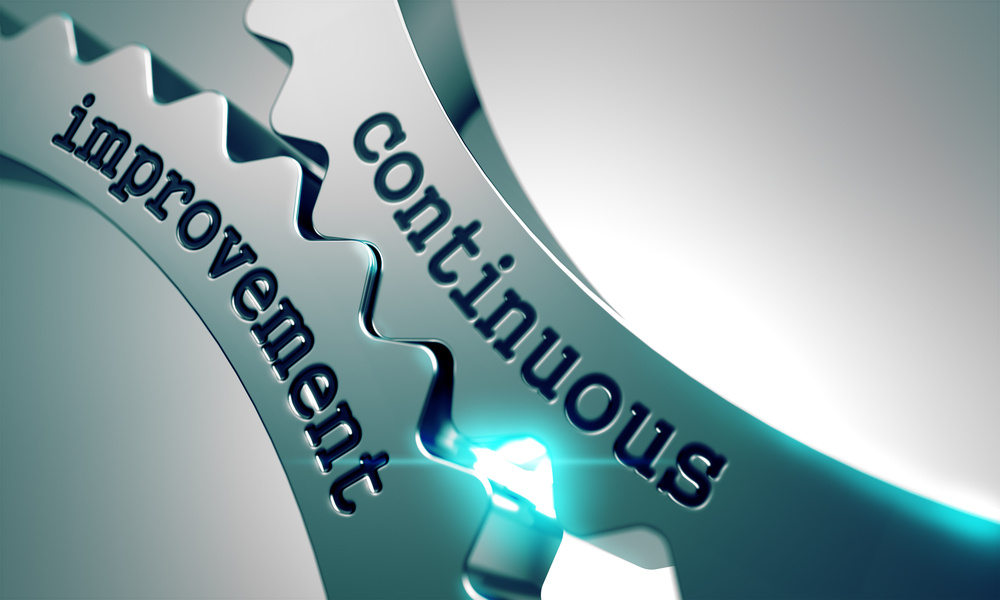Choosing the right logistics consultant isn’t just about rates—it’s about protecting performance and profit. Supply-chain disruptions cost the average company roughly 45% of one year’s profits over a decade, which is why picking a partner with the right mix of industry expertise, change management skills, and data capability is critical.
In this guide, we outline five factors—industry expertise, track record, communication, adaptability, and cost-effectiveness—to help you select a consultant who can de-risk operations and accelerate results.
Industry Expertise
The Importance of Choosing a Logistics Consultant with Relevant Experience
Evaluating a logistics consultant's industry expertise is crucial when choosing a consultant. The consultant should have a deep understanding of the logistics industry, as well as the specific challenges and opportunities that your business faces. This will ensure that they can provide relevant and effective recommendations and solutions.
Look for a consultant who has experience working in your industry or with companies similar to yours. They should be able to demonstrate their knowledge and expertise through case studies, testimonials, and references.
By choosing a consultant with industry expertise, you can be confident that they will bring valuable insights and expertise to your business and help you achieve your goals.
Industry knowledge doesn’t stop at logistics itself—related industries also influence the effectiveness of supply chain solutions.
How Related Industries Shape Logistics and Supply Chain Solutions
By showing real-world cases from other industries, cross-sector lessons can spark innovation in supply chain solutions. For example, practices in retail have influenced just-in-time warehousing, while healthcare has pushed stricter compliance measures that later became common across other sectors. Similarly, manufacturing has driven automation standards that are now central to modern distribution.
Drawing insights from related industries offers solutions that expand beyond one sector. By applying proven practices across contexts, businesses can gain efficiency, compliance, and resilience.
Track Record of Success
Evaluating a Logistics Consultant's Past Performance and Results
When evaluating a logistics consultant, it's important to consider their track record of success. A good consultant should be able to demonstrate their ability to deliver results and make a positive impact on their client's businesses. Ask for references, and take the time to speak with their past clients to get a sense of their experiences. Look for a consultant with a history of successfully addressing similar challenges and goals to those faced by your business.
The consultant's track record of success will give you confidence in their ability to deliver the results you need and help you reach your goals. Selecting a consultant with a demonstrated history of success ensures that you are making a strategic investment in the future of your business.
Evaluating past success is vital, but it’s equally important to see how consultants respond to today’s challenges.”
Current Challenges Facing the Global Logistics Industry
Here’s a clear example of problem-and-solution thinking—recognizing today’s global challenges and applying targeted fixes is where real value is created.
Problem: The global logistics industry faces fuel volatility, labor shortages, tighter regulations, and supply chain bottlenecks. These obstacles increase costs and slow delivery performance.
Solution: Professionals who stay current with market conditions can anticipate risks, redesign processes, and recommend technology-driven efficiencies. By doing so, businesses aren’t just reacting to crises—they’re proactively staying competitive in an ever-changing environment.
Communication and Collaboration Skills
The Importance of Choosing a Logistics Consultant who is a Good Fit for Your Team
Effective communication and collaboration skills are critical when choosing a logistics consultant. The consultant will be working closely with your team, so it's important to find someone who is a good fit and able to work well with others.
Look for a consultant who can communicate their ideas and recommendations and who is open to feedback and collaboration. They should also be able to effectively communicate with all stakeholders, including your team, suppliers, and customers.
Good communication and collaboration skills will ensure that the consultant can effectively implement their solutions and drive results for your business. Making sure that the consultant you choose is compatible with your team and possesses exceptional communication and collaboration abilities creates a strong foundation for a productive and successful partnership.
Flexibility and Adaptability
The Importance of Choosing a Logistics Consultant who can Adapt to Your Changing Needs
The ability to be flexible and adaptable is vital in selecting a logistics consultant. The business world is constantly evolving, and your logistics needs may change over time.
It's important to choose a consultant who can adapt to these changes and provide solutions that meet your evolving needs. Look for a consultant who is open-minded, creative, and able to think outside the box.
They should also be able to quickly pivot and adjust their approach as needed. Selecting a consultant who possesses flexibility and adaptability ensures that they can deliver solutions that align with your evolving needs and maintain your business's competitive advantage.
Disruptions are now routine in global supply chains, making resilience a top priority.
Responding to Global Supply Chain Disruptions
This list of strategies shows that resilience isn’t built overnight—it’s a set of actions companies can take step by step.
Businesses can respond to disruptions through:
- Diversified Sourcing: Reducing reliance on a single supplier or region.
- Contingency Routing: Building alternative shipping paths to avoid delays.
- Real-Time Monitoring: Using visibility tools to spot issues early.
- Risk-Sharing Partnerships: Working with carriers that share responsibility for disruptions.
These strategies minimize financial impact while ensuring customers face fewer delays, even during crises.
Cost-Effectiveness
Balancing Quality and Value when Choosing a Logistics Consultant
Cost-effectiveness is a crucial factor to consider when selecting a logistics consultant. You want to find a consultant who can deliver high-quality solutions at a reasonable price.
However, it's important to remember that the cheapest option may not always be the best. Look for a consultant who offers a good balance of quality and value.
Consider their track record of success, their experience and expertise, and the results they have delivered for other clients. By choosing a cost-effective consultant, you can ensure that you are getting the best value for your investment and that you are making a wise choice for your business.
Cost-effectiveness isn’t only about lower rates—it’s about smarter operational planning.
Optimizing Location, Routing, and Scheduling for Sustainable Cost Savings
By selecting distribution centers near high-demand markets, companies cut transportation time. Optimized routing reduces empty miles, while strategic scheduling minimizes detention fees. Together, these practices create sustainable cost savings and reduce environmental impact.
When guided effectively, these improvements can transform cost structures, making supply chains both leaner and greener without sacrificing performance.
Each sector of logistics presents unique challenges that consultants must understand.
Main Sectors in Logistics and Their Distinct Challenges
Breaking logistics down into categories like freight, warehousing, e-commerce, and cold chain shows how solutions must be adapted to sector-specific realities.
- Freight & Transportation: Managing capacity, fluctuating rates, and on-time delivery.
- Warehousing & Distribution: Balancing space, speed, and inventory accuracy.
- E-commerce Fulfillment: Scaling quickly while meeting consumer expectations.
- Cold Chain Logistics: Protecting temperature-sensitive goods from spoilage.
Tailoring strategies to these distinct sectors delivers more precise, actionable solutions. Recognizing these nuances ensures recommendations align with real-world operations.
Finding a Logistics Consulting Partner for Business Success
Choosing the best logistics consulting firm is an important decision that can have a significant impact on your business. When evaluating potential supply chain and logistics consultants, consider their industry expertise, track record of success, communication and collaboration skills, flexibility and adaptability, and cost-effectiveness.
Take the time to research each consultant and ask for references and case studies. By considering these factors, you can find a consultant who will bring valuable insights and expertise to your business and help you achieve your goals.
Ultimately, the right transportation and logistics consulting firm will be a valuable partner that will work with you to drive results and success for your business.
Visigistics Solutions
At Visigistics, we offer our customers a clear path to reliable logistics. The businesses we consult with understand the demands of maintaining their supply chain and equipping their businesses with the right options and resources to drive reliable results.
Our consultants utilize their industry expertise to help business leaders establish flexible solutions that can adapt to the challenges they face in today's supply chain. Our goal is to partner with business leaders to restore reliability and optimize performance across their logistics and supply chain operations.
To learn how our consulting solutions can help improve your supply chain, fill out the contact form.





